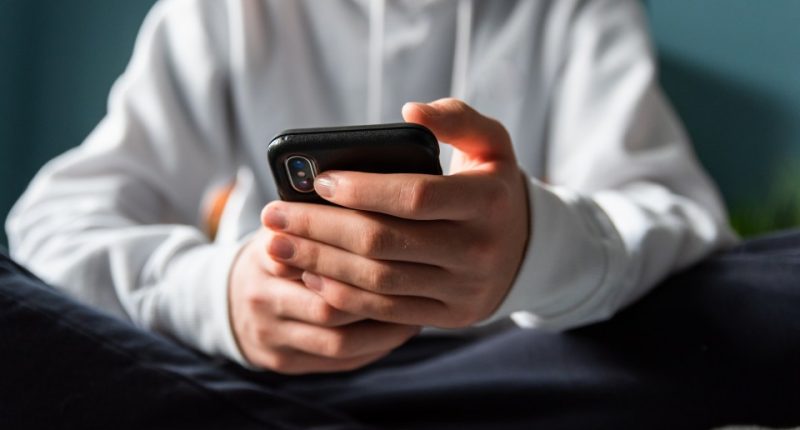Share this @internewscast.com
A CONTROVERSIAL new law will restrict children’s time on social media.
The new amendment limits children under the age of 16 to just one hour of screen time pending their parents’ approval.
The law will force social media companies to verify users’ ages and limit underage kids to just one hour per day on their apps.
The law gives parents the ability to adjust their child’s screen time, either increasing or decreasing it, but this requires verifiable consent through a setting on the app, as reported by local Fox affiliate WTTG.
Virginia legislators passed the law as research shows that social media can harm young people’s mental health.
The bill, officially an amendment to the state’s Consumer Data Protection Act, was signed into law by Governor Glenn Youngkin on Friday.
Virginia Governor Glenn Youngkin said social media was causing a mental health “crisis,” and believes that this bill can help solve it.
Virginia’s Consumer Data Protection Act was designed to protect consumers from unfair or deceptive business practices.
Under the new amendment, social media platforms are prohibited from using the information collected for any purpose other than age verification.
Platforms that are mainly used for email or messaging remain exempt from the new law.
In January, Senator Schuyler VanValkenburg described the bill as “a giant first step toward regulating social media and protecting our kids,” according to local CBS affiliate WUSA.
Youngkin had pushed to raise the age to 18 and under, which the Senate approved.
However, the House voted against the governor’s changes.
The state’s General Assembly showed bipartisan support for the bill, yet not everyone is equally enthusiastic about it, and the method of enforcement remains unclear.
“I don’t know if I see it being effective,” Jen Golbeck, a professor at the University of Maryland’s College of Information told WTTG.
“Honestly, kids are very clever at getting around these and, you know, I totally understand that.
Virginia Consumer Data Protection Act
The bill grants Virginia residents rights related to their personal data, including the right to access, correct, and delete their information, as well as the right to opt out of certain processing activities like targeted advertising and the sale of data.
With the new amendment, social media platform operators will be required to use commercially reasonable methods to determine whether a user is a minor under 16 and limit use of the social media platform to one hour per day, unless a parent consents to increase the daily limit.
“Like, what are you going to do if you’re a platform and a 12-year-old, 14-year-old signs up and says they’re 25 like, are you going to require ID from everyone who signs up for your platform? Probably not,” Golbeck continued.
“If you take those platforms away, what they’re going to do is find other platforms that are outside the bounds of what this law covers, that allow them to communicate with their friends and share in very similar ways and so that really limits the impact that this is going to have.”
NATIONWIDE TREND
The bill mirrors a similar proposed law in Utah restricting the times minors can scroll on social media.
The 2023 bill would prohibit minors from scrolling on social media between 10:30 pm and 6:30 am without parental consent.
The proposition received bipartisan support, however, a nonprofit associated with Meta protested the law.
The nonprofit claimed that the restrictions violated freedom of speech.
Although it received support, Utah Governor Spencer Cox could not enforce it after a federal court judge blocked it in September 2024.



















